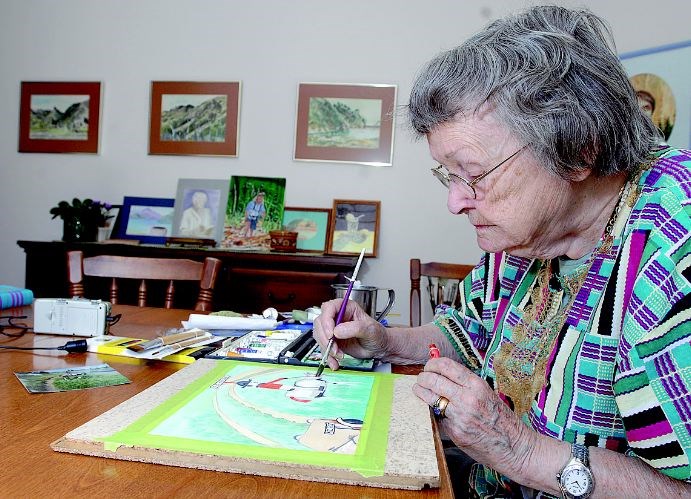She feels like a drunken sailor walking down the street.
That's the worst part of having Parkinson's disease for 88-year-old Connie Buchanan.
"The sidewalk needs to be about three feet wider as I lurch down the street with my cane," said Buchanan.
The Parkinson SuperWalk to raise funds and awareness is Saturday at Fort George Park with registration at noon and the walk at 12:30 p.m.
Parkinson's is a disorder of the brain and is the second most common chronic neurodegenerative disorder after Alzheimer's.
There is no cure.
The most common symptoms are tremors, slowness in movements, muscle stiffness and problems with balance. Most people can manage their symptoms with medication.
For Buchanan, it started with her head nodding involuntarily when she was about 45 years old.
"At least everyone thought I was a very positive person," Buchanan said with a smile. "I didn't even notice until my daughter would put her hand on my face and told me my head was shaking. And how can that be? It's my head moving up and down -- how can I not be aware of that?"
Buchanan was a teacher who retired at 60. When she took up painting as a hobby, the tremors would interfere.
"I can still carry a cup of coffee from the kitchen to the dining room table, so I'm still doing pretty good," said Buchanan. "But if I try to draw a line, sometimes it doesn't always turn out straight."
Buchanan is a member of both the Elder Citizens Recreation Association and the Senior Citizen Activity Centre, which are just a few blocks from her home.
"I go out at least five days a week to go carpet bowling and floor curling and to play scrabble."
Ron Corbett is organizing the walk, inspired by his father, Bill, .
Bill, 75, experiences one of the more extreme symptoms of Parkinson's called freezing, a rigidity in the muscles where the person is completely frozen for a time.
"It's really hard to watch," said Corbett. "He's why I organize this walk.


